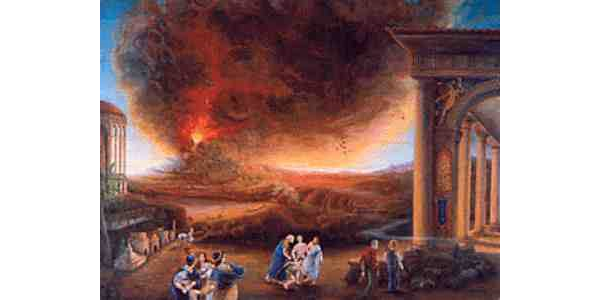On August 24, 79 A.D. after centuries of dormancy, Mount Vesuvius erupts in southern Italy, devastating the cities of Pompeii and Herculaneum and killing thousands. Both cities were buried under a thick layer of volcanic material and were never rebuilt. At noon on August 24, 79 A.D., this pleasure and prosperity came to an end when the peak of Mount Vesuvius exploded, propelling a 10-mile mushroom cloud of ash and pumice into the stratosphere. For the next 12 hours, volcanic ash and a hail of pumice stones up to 3 inches in diameter showered Pompeii, forcing the city’s occupants to flee in terror. Some 2,000 people stayed in Pompeii, holed up in cellars or stone structures, hoping to wait out the eruption Pompeii and Herculaneum were later rediscovered and excavated, providing an unprecedented archaeological record of the everyday life of an ancient civilization, startlingly preserved in sudden death.


